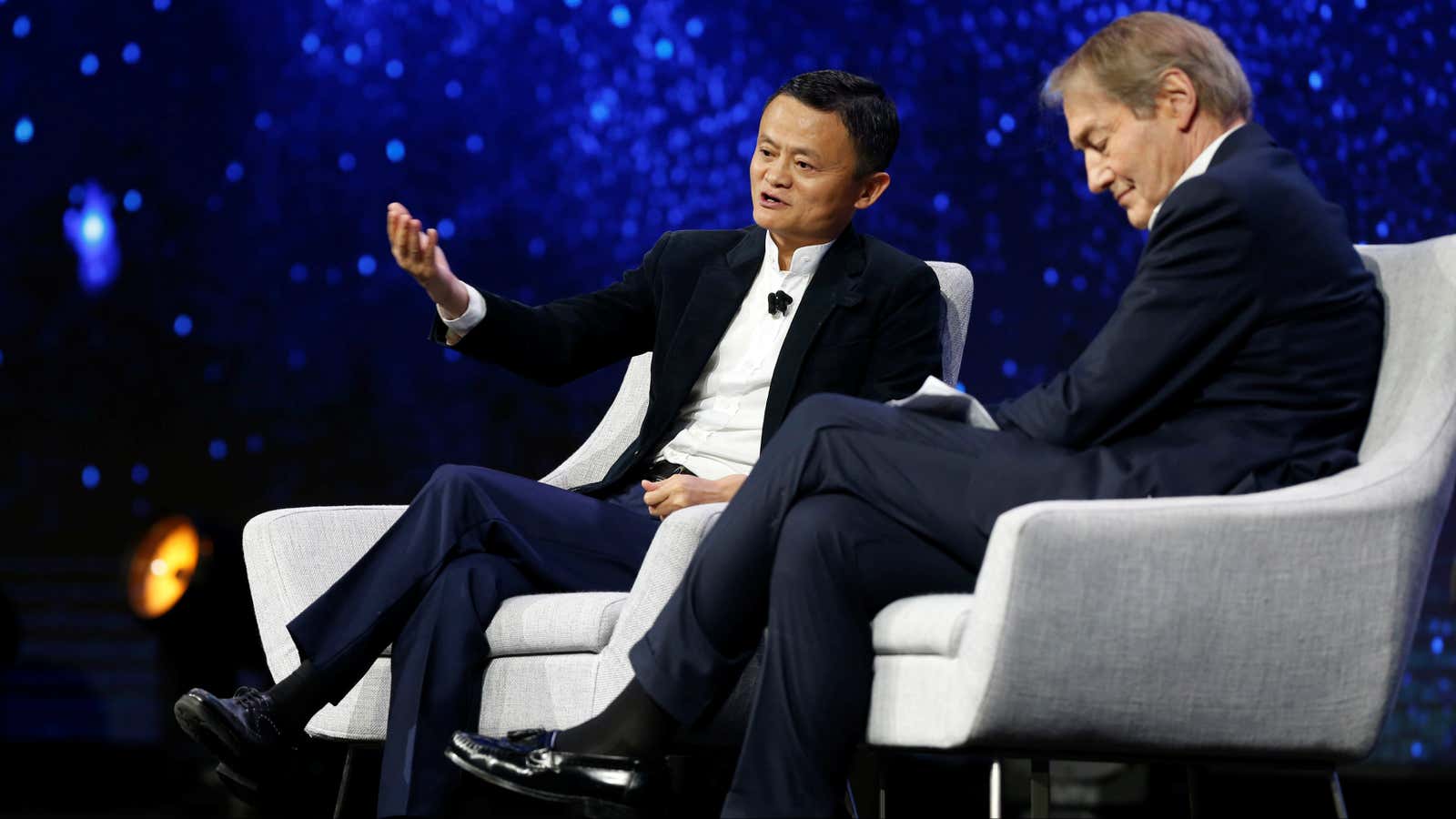On June 20 Jack Ma took the stage in Detroit in front of thousands of entrepreneurs for Gateway ’17—an event intended to draw US small businesses onto Alibaba with the promise of reaching “one billion Chinese consumers.”
In a live interview with Charlie Rose, the e-commerce mogul shied away from discussing geopolitics and globalization, and instead discussed the company’s early days and his values as a business owner. He did, however, briefly address a thorny problem for the company—allegations from brands of widespread counterfeit goods, which he called a “cancer.” The US Office of the Trade Representative in December added one of its platforms back to a list of “notorious” markets, calling the level of fake goods on offer “unacceptably high.”
“For counterfeit things, of course there are a lot at the beginning. But you have to fix it,” he said, referring to the company’s early days. “I assure all the SME’s here, we are the company online here today, the leader in counterfeit and IP protection. We know there are three things that will make our site die, three things that will be the cancer of our business—counterfeit, IP, and cheating,” he added.
The comments are in line with recent remarks Ma has made about fake goods, but contradict previous ones. In a November 2015 cover story in Forbes, the e-commerce mogul expressed concern about counterfeits on Taobao and Tmall, but also showed little empathy for the brands affected by it. “How can you sell Gucci or whatever branded bag for so much money? It is ridiculous,” he told the magazine. “I understand the branded companies are not happy, but I also say that’s your business model. You have to check your business model, too. Months later, at the company’s annual investor summit, Ma told the audience (paywall) “fake products today are of better quality and better price than the real names.”
Ma’s sentiment likely stems from a tendency to side with the small Chinese business owner scraping by through selling knock-offs, as well as recognition that curbing fakes in China remains extremely difficult. Nevertheless, the attention garnered from these comments has caused Ma to moderate his stance. Shortly after the investor summit, Ma penned an op-ed piece explaining his comments and affirming that Alibaba has a zero-tolerance policy on fakes. And in January 2017, the company filed a lawsuit in China against two sellers of fake Swarovski watches.
Still, Ma faces pressure to clean up his company’s image. Some American small businesses have claimed that they have spotted copycat products (paywall) on Alibaba listed by Chinese sellers—a trend that could deter the very group Ma is trying to attract at the Detroit event.
